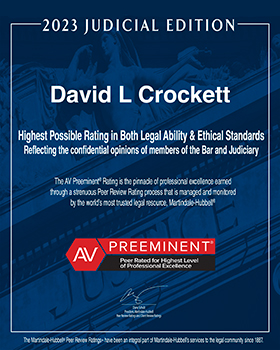Preservation Solutions
Family Protection
NEEDS DURING PROBATE. Because probate typically take a year or more in Orange County and many other counties the law does have some provisions which enable surviving spouses and families to get something out of the estate before it closes.
THE FAMILY DWELLING. In probate code §§ 6500 through 6528 there are procedures dealing with temporary possession of the family dwelling and property considered to be exempt property. The law provides for an initial grace period allowing the surviving spouse and minor children to remain in possession of the the family home up until 60 days after the probate inventory is filed. This also applies for wearing apparel, household furniture, and property of the decedent exempt from enforcement of a money judgment. Also, this initial grace period can be extended by court order for good cause the court order would have to be initiated by a court petition which can be filed by any interested person. This procedure in court order is sometimes referred to as a “probate homestead”.
PERSONAL PROPERTY EXEMPT FROM EXECUTION. Temporary possession of any of the decedent’s property which is exempt from enforcement of a money judgment is protected from creditors the same as the family dwelling. There are many assets which are exempt from execution including motor vehicles, household furnishings and appliances, materials for repair of the principal residence, jewelry, health aides, tools of the trade, and various other assets. The complete list of assets exempt can be found in the California judicial Council form number EJ – 155. As with the family dwelling, the temporary protection can be extended for good cause by a court order initiated by a petition filed by any interested person.
DECLARED HOMESTEAD. There is a procedure in California known as a homestead declaration which may have been done by both husband and wife before the death of one of them. The declared homestead is still valid at least as to the surviving spouse’s portion and thus gives some protections against judgments regardless of the probate.
WHAT HAPPENS TO THE PROBATE HOMESTEAD AT THE END OF PROBATE? The probate homestead procedures are meant as a temporary stopgap to keep the surviving spouse and minor children from being immediately displaced. However, if it turns out that the family home needs to be sold to pay debts of the decedent or if the will of the decedent leaves his portion of the family residence to somebody other than the surviving spouse, it may have to be sold.
FAMILY ALLOWANCE. Probate code §§ 6542-6545 provide for a reasonable cash allotment to be paid out of the estate for the benefit of the surviving spouse in their minor children. If applied for, the surviving spouse and/or domestic partner and minor children and have a right to a family allowance. There are eligibility requirements that have to be considered such as whether they surviving spouse and decedent were living together or separated at the time of death and other technical rules. Also, a bigamist spouse has no right to a family allowance. The law states that minor children of the decedent, excluding children of a surviving spouse’s former marriage are entitled to a “reasonable allowance” for support. Likewise as to the surviving spouse, if eligible. Need is always a factor in terms of determining the amount of support. Also, if an eligible person has maintenance from other sources and if there are competing persons wanting a family allowance it is only granted to those persons who do not have maintenance from other sources.
PROCEDURE TO OBTAIN A FAMILY ALLOWANCE. A court petition giving notice to all interested parties is generally required. A hearing date would be set after the petition is filed and evidence within the presented to the judge and a decision would be made. There is an exception to this requirement of a notice hearing. Before the inventory has been filed in the estate the surviving spouse or registered domestic partner, minor children and/or adult dependent children who are incapacitated can apply to the court for an ex parte award. That award would be temporary not exceeding 6 to 12 months in most courts. To renew or extend the family allowance would require a notice court hearing.
WHERE DOES THE FAMILY ALLOWANCE GET PAID OUT OF? The general estate assets are used for the payment of the family allowance. Also the payments of the family allowance are in addition to and not in lieu of a beneficiary’s interest in the estate. As an example, supposing a minor child of the decedent is limited to an inheritance of $1000 as stated in the decedent’s will. Any family allowance paid to that minor child would not count toward the $1000 inheritance and the $1000 stated in the will is not to be considered as a limitation on the amount of the family allowance to be paid. If the family allowance is considerable and goes on for a period of time, it can actually upset the estate plan set forth in the decedent’s will. However, that doesn’t matter. The family allowance takes precedent over the decedent’s will.
OMITTED SPOUSES DOMESTIC PARTNERS AND CHILDREN. Where there is an unintentional omission of a spouse, domestic partner, or children, from a Will or a Trust, the law presumes they were forgotten. If a decedent leaves a will which does not mention a particular child of his, then that child would receive a share of the decedent’s estate as if the decedent had died intestate, i.e. without a will. Probate code §21600. The child in this circumstance would be considered a “pretermitted heir”. Also, under certain conditions, probate code §21620 gives a post-humorously conceived a child rights to inherit as well.
DEFINITE LANGUAGE NEEDED TO DISINHERIT. A decedent’s will must contain express and unambiguous language if the will is to disinherited a particular person or class of persons. Merely not mentioning a child or spouse or domestic partner in one’s will does not satisfy this requirement. The will should state something to the effect that, “I specifically disinherit John Doe and specifically decline to leave any gifts or inheritance to John Doe from my estate.” Another method to disinherit a person in one’s will or in one’s trust is to leave a specific amount. Thus, if the will or trust says, “I specifically give my son John Doe the sum of $100 and no more” the desired effect is obtained. By mentioning John Doe and giving him something, even as small as one dollar, he cannot argue that he was forgotten and is thus not a pretermitted heir under the law.
Read David Crockett’s Detailed Blog Posts:
Click Here for Posts Regarding PROBATE








